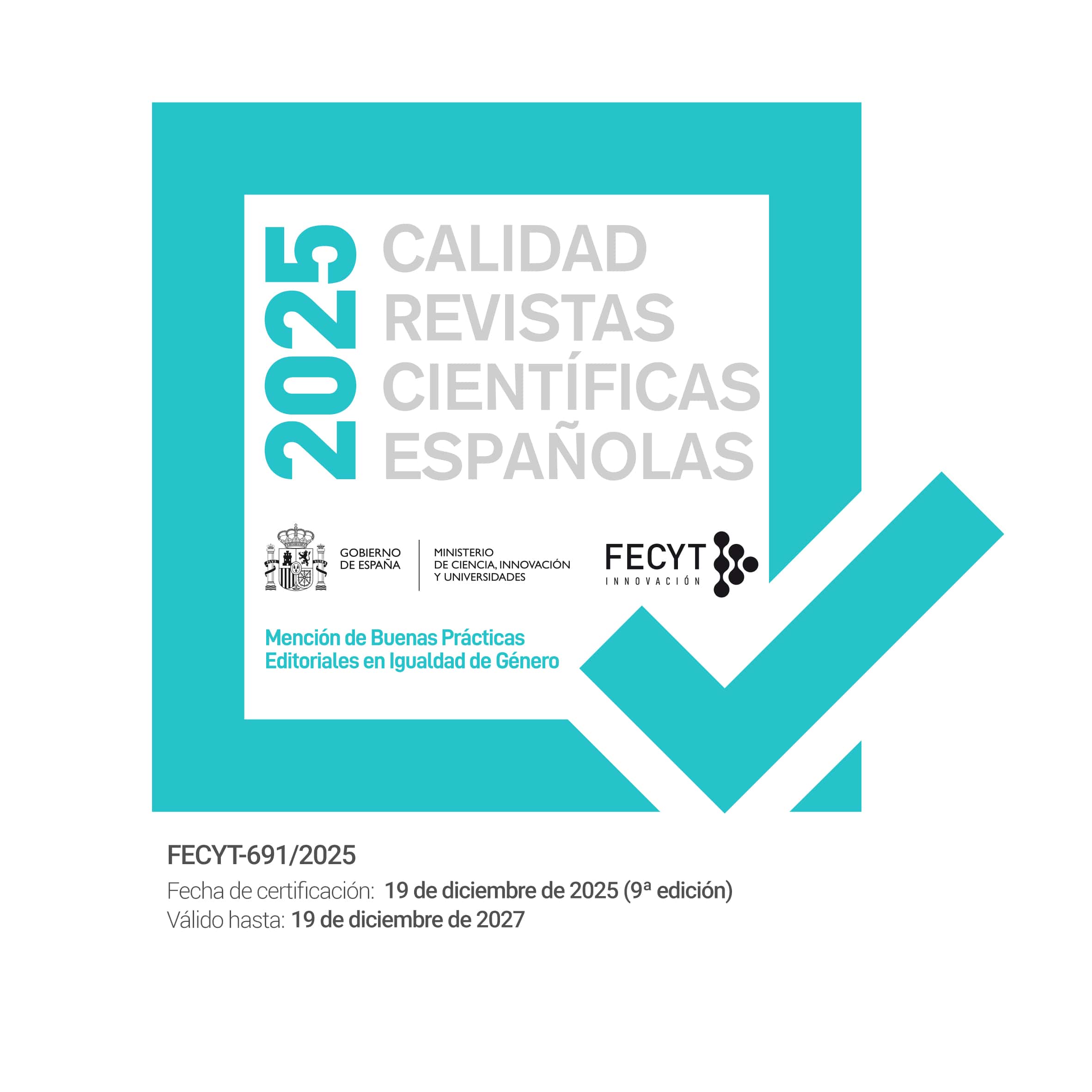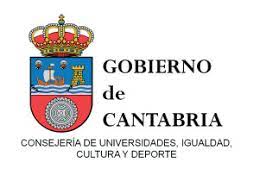Galdós against the modernist discourse of modernity. For a complex reading of realism
DOI:
https://doi.org/10.55422/bbmp.387Keywords:
Pérez Galdós, Juan Goytisolo, Juan Benet, Modernity, RealismAbstract
In the first part of this article is examined the esthetics hostility climate toward Galdós that emerges in the sixties, consequence of the control of the literary norm by the triple alliance that configure the neo-avant-garde and ex-realists novelists (J.Goytisolo), the novísimos, and J. Benet, that represents the Modernism intenacional tradition. But the consequent exclusion of Realism and of Galdós of the canon could not have produced by strictly internal causes to the Spanish literary practise. Over the dominant currents in this, it operates the scientific model of the General Linguistics, and the formalista-estructuralista-semiótico paradigm that imposed in the humanistic disciplines of this time. In a second moment is studied how after World War Two a critical speech is formed on the Modernity that, with its origin in the German Romanticism and in the sociology ofMax Weber, is elaborated in a decisive way by the critical theory of Francfort (Adorno and Horkheimer) and remade by Postestructuralism and by the first Postmodernism. This speech, to that we denominated the Modernist Speech on Modernity, and that imposes an esthetic-ideological norm (symbolist-modernist) and an artistic-literary canon, is analyzed through its fundamental thesis. It allows to elaborate a critic of that speech and to relate it to the shift of paradigm that begins in the years 80 of the 20th century (Habermas, Berman, Touraine, Barman, Foucault, re-reading of Bajtin, Harvey…). From that critic it is possible to put in question the false one and interested homologation between Cultural Modernity and Literary Modernism and to deconstruct the image built by the Modernist Speech on Modernity on the work of Galdós, as well as to devise the bases of a different and more complex vision of the Realism and of the role played by the realistic aesthetics in the framing of
Modernity.
Downloads
Publication Facts
Reviewer profiles N/A
Author statements
Indexed in
- Academic society
- Sociedad Menéndez Pelayo
- Publisher
- Sociedad Menéndez Pelayo
Global Statistics ℹ️
|
193
Views
|
156
Downloads
|
|
349
Total
|
|
References
Adorno, Theodor W. (1962) «Discurso sobre lírica y sociedad», Notas de Literatura, Barcelona, Ariel.
Adorno, Theodor W. y Horkheimer, Max. (1947, primera versión en libro impreso) Dialektik der Aufklärung. Cito por la versión en castellano de la edición alemana de 1969, Dialéctica de la Ilustración. Madrid. Trotta. 1994.
Allegra, Giovanni (1981). «Del Modernismo como antimodernidad» , The saurus, 36, 90-103.
Althusser, Louis (1965). Pour Marx. Maspero. Paris.
Aronowitz, S.(1981). The Crisis of Historical Materialism. New York.
Bajtin, Mijail (1989). Teoría y estética de la novela. Madrid. Taurus.
Barthes, Roland (1964). Essais Critiques. Paris. Seuil.
____ (1970). S/Z. Paris. Seuil. Trad esp Madrid, Siglo XXI, 1980.
Benet, Juan (1966). La inspiración y el estilo. Cito por la 2ª ed. Barcelona, Seix Barral,1973.
Benet, Juan (1983). Artículos, Madrid. Eds. Libertarias, 1983, vol. I, 89-100.
Berman, Marshall (1982). Cito por la versión castellana: Todo lo sólido se disuelve en el aire. La experiencia de la modernidad. Madrid. Siglo XXI, 1988.
Blasco, Francisco J. (1993). «De 'Oráculos' y de 'Cenicientas': la crítica ante el fin de siglo español», en Cardwell, R. y McGuirk B. ¿Qué es el Modernismo? Nueva encuesta, nuevas lecturas. Boulder, Colorado, 59-86.
Bürger, Peter (1987). Teoría de la Vanguardia, Barcelona, Península.
Butt, John (1993). «Modernismo y Modernism», en Cardwell, R. y McGuirk B. ¿Qué es el Modernismo?... Op. cit. 39-58.
Cardwell, Richard (1993). «Una hermandad de trabajadores espirituales: los discursos del poder del modernismo en España», en Cardwell, R. y McGuirk B. ¿Qué es el Modernismo? Op. cit. 165-198.
Chartier, Roland (1992). El mundo como representación. Barcelona. Gedisa.
Derrida. Jacques (1972). La dissémination. Paris. Seuil. Trad esp Madrid, Fundamentos, 1975.
Díaz Plaja, Guillermo (1951). Modernismo frente a Noventa y Ocho: una introducción a la literatura española del siglo XX. Madrid, Espasa Calpe.
Ferreres, Rafael (1981). Los límites del modernismo y del 98. 2ªed. corr. y aum. Madrid, Taurus.
Foster, Hal ed. (1983). The anti-aesthetic: essays on postmodern culture. Port Townsend, Washington.
Foucault, Michel (1969). L'archéologie du savoir. Cito por la trad. española, La arqueología del saber, Madrid, Siglo XXI, 1970.
____ (1975) Surveiller et punir. Naissance de la prison. Paris. Trad. castellana: Vigilar y castigar. México. Siglo XXI, 1976.
Gold, Hazel (1993). The Reframing of Realism. Galdós and the Discourses of the Nineteenth Century Spanish Novel. Durham, Duke U
Gullón, Germán (1993). «Galdós, un clásico moderno» Insula, Nº 561, de septiembre de 1993.
Gullón, Ricardo (1980). El modernismo visto por los modernistas. Barcelona. Labor.
Gutiérrez Girardot, Rafael (1983). El modernismo. Supuestos históricos y culturales. México. FCE.
Habermas, Jürgen (1987). Teoría de la acción comunicativa, Madrid, Taurus, 2 vols.
____ (1988). «La dialéctica de Modernidad y Postmodernidad», en J.Picó ed. (1988). Modernidad y postmodernidad. Madrid. Alianza editorial, 87-102.
Harvey, David (1990). Cito por la versión castellana, La condición de la posmodernidad. Buenos Aires. Amorrortu editores. 1998.
Huyssen, Andreas (1988). «En busca de la tradición: vanguardia y postmodernismo en los años 70» y «Cartografía del postmodernismo», ambos trabajos en J.Picó ed. (1988). Modernidad y postmodernidad. ocit, 141-164 y 189-248 respectivamente.
Jameson, Frederic (1984) Cito por la trad. española, El postmodernismo o la lógica cultural del capitalismo avanzado. Barcelona. Paidós. 1991.
Jay, Martín (1973) The Dialectical Immagination: a history of the Francfort School and the Institute of Social Research 1923- 1950. Boston.
Jiménez, Juan Ramón (1962). El modernismo: notas de un curso (1953) Ed. de R. Gullón y E. Fernández Méndez. México. Aguilar.
Labanyi, Jo ed. (1993). Galdós. London. Longman.
Lyotard, Jean F. (1979). La Condition posmoderne. Paris. Minuit
____ (1993) Moralités postmodernes. Cito por la versión castellana, Moralidades postmodernas. Madrid. Tecnos. 1996.
McHale, B. (1987). Postmodernist Fiction. London. Methuen.
Miller, Stephen (1993). Del realismo/naturalismo al modernismo: Galdós, Zola, Revilla y Clarín (1870-1901). Las Palmas. Cabildo Insular de Gran Canaria.
Oleza, Joan (1995). «El debate en torno a la fundación del realismo. Galdós y la poética de la novela en los años 70». Actas del Quinto Congreso Internacional de Estudios Galdosianos. Las Palmas. Cabildo Insular de Gran Canaria. Vol.I, 257-278.
____ (2000). «Voces en un campo de sangre: Max Aub y los penúltimos episodios nacionales». Cito por Olivar. Universidad Nacional de La Plata. Año
/2002. Nº 3, 45-64.
____ (2003) «Calderón y los liberales» , en E. Cancelliere (ed.) (2003) Giornate calderoniane. Calderón 2000. Palermo. Flaccovio editore, 395-418.
Onís, Federico de (1934). «Historia de la poesía modernista (1882-1932)», en España en América, Río Piedras, Ediciones de la Univ. de Puerto Rico, 186-280.
Picó, J. ed. (1988). Modernidad y postmodernidad. Madrid. Alianza editorial.
Pratt, M.Louise (1977). Toward a Speech Act Theory of Literary Discourse. Bloomington. Indiana University.
Ricoeur, Paul (1985). Temps et récit. Paris. Seuil. 3 vols.
Roberts, David (1988). «Marat/Sade, o el nacimiento de la postmodernidad a partir del espíritu de la vanguardia», en J.Picó ed. (1988). Modernidad y postmodernidad. Op. cit. 165-188.
Rodríguez Puértolas, Julio (1975). Galdós, burguesía y revolución. Madrid. Turner.
Salinas, Pedro (1949). «El problema del modernismo en España, o un conflicto entre dos espíritus», en Literatura española, Siglo XX. 2ª ed. México, Antigua Librería Robredo. Edición posterior en Madrid, Alianza editorial, 1970, 13-25.
Taylor, B. (1987). Modernism, post-modernism, realism: a critical perspective for art.Winchester.
Touraine, Alain (1992) Cito por la trad. española: Crítica de la Modernidad. Madrid. Temas de hoy. 1993.
Vattimo, G. y Rovatti, A. eds.(1983) Il pensiero debole. Milano. G.Feltrinelli Editore.
Vattimo, Gianni (1990). «Posmodernidad, ¿una sociedad transparente?», en VVAA, En torno a la posmodernidad. Barcelona. Anthropos.
Venturi, Scott-Brown e Itzenour (1972). Learning from Las Vegas. Cambridge, Mass.
Villalonga, Llorenç (1975). «Las tardes silenciosas», en B.Porcel, Els meus inèdits de Llorenç Villalonga. Barcelona, Eds.62, 1987. 75-114.
Weber, Max (1901). Cito por la trad. española La ética protestante y el espíritu del capitalismo. Barcelona, Península. 1969.
Wellek, René (1973). Historia de la crítica moderna (1750-1950).II. El Romanticismo. Madrid, Gredos.
Downloads
Published
How to Cite
Issue
Section
License
Copyright (c) 2022 Joan Oleza

This work is licensed under a Creative Commons Attribution-NonCommercial 4.0 International License.








